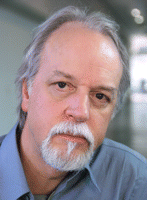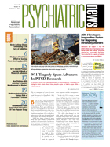Shortly before the September 11, 2001, terrorist attacks on the World Trade Center, psychiatrist Neal Cohen, M.D., took part in desktop drills, practicing a response to various potential emergencies.
Cohen served then as both commissioner of the New York City Department of Health and of the city's Department of Mental Health, Mental Retardation, and Alcoholism Services.
His primary concern after those drills was the health care system's surge capacity for dealing with large numbers of injured residents.
Of course, that surge capacity was never truly tested on September 11, since most of those in the World Trade Center either died or escaped safely.
Cohen ended up working in the city's makeshift emergency command post uptown from the World Trade Center, as the need for a central point to which the families of victims might go for help was apparent early on.
Within a day or so, the city's original family-assistance center was moved from the grounds of Bellevue Hospital to an armory on Lexington Avenue and the following week to a 100,000 square-foot building on a Hudson River pier.
City agencies such as the health, fire, police, and human resources departments, along with the Red Cross and insurance companies, set up sites within the center to help families.
Mental Health Volunteers Were Important
The Department of Health accepted mental health care volunteers to work at the family center, but even in that emergency situation took the time to screen the applicants, said Cohen's colleague, Michael Lesser, M.D., then the medical director of the city's mental health department.
"We didn't know their qualifications, so we gave preference to people who worked for hospitals or clinics because that implied at least some prior quality control, compared to those in private practice," said Lesser, also a psychiatrist.
The city medical examiner's office soon created a list of the dead as recovery of bodies proceeded at ground zero and asked for the mental health department's help in notifying families of victims.
One of those volunteer specialists was Hunter McQuistion, M.D., now president of the American Association of Community Psychiatrists.
McQuistion worked for an agency that served homeless adults with disabilities, but in his spare time after September 11, he worked at the family-assistance center. As bodies from the World Trade Center were recovered and identified, their names were added to a database at the center. When families came in seeking word about missing relatives, McQuistion and other mental health professionals could check the database to see if remains had been recovered.
If a name on the list was that of a missing family member, McQuistion or his colleagues took the family into a smaller, private room to break the news.
"We waited for a response, then managed the response," he said. "The experience was very intense, not because I hadn't been trained for it, but because I was living through the same experience myself."
As time went by, city health officials took steps to deal with longer-term effects of the attacks on New York residents, said Cohen, now associate provost for health and social welfare at Hunter College.
"We divided populations into higher- and lower-risk categories," said Cohen. "The closer they were to the [World Trade Center] or in the buildings, the higher the risk and the chances that they might need more services."
Support Networks Quickly Mobilized
They sought to mobilize the social support networks of survivors.
"We realized that all New Yorkers were affected by the images repeatedly shown on television," said Cohen. "The gravity and the magnitude of the loss were clear, so we began to plan to promote messages for a community outreach campaign."
Like other localities in the New York metropolitan area, the city cooperated with Project Liberty, the state-run, FEMA-funded program that supported short-term crisis counseling for residents (see
Clinicians Need Better Trauma Training).
The city health department set up a broad public-outreach educational program using ads on subways, buses, TV, and radio. The basic message was, "You are not alone, and what you are experiencing is not pathological." The department offered supportive counseling and referred to therapy as needed.
"We didn't want to stand back and wait for people to ask for help," he said. "We wanted to destigmatize and normalize feelings people had in response to the tragedy."
Wearing two administrative hats helped integrate mental health into the large public health response, said Cohen of his role. Disaster-response planning should include an understanding that mental well-being is part of overall health and recovery from illness or trauma, he said.
Part of the long-term healing process may happen with the passage of a decade, Cohen believes.
"I hope that the 10th anniversary and the completion of the September 11 memorial will be an opportunity for visitors to experience the history of the event and for New Yorkers who lived through it to have a place to remember with a sense of recovery without forgetting," he said.

